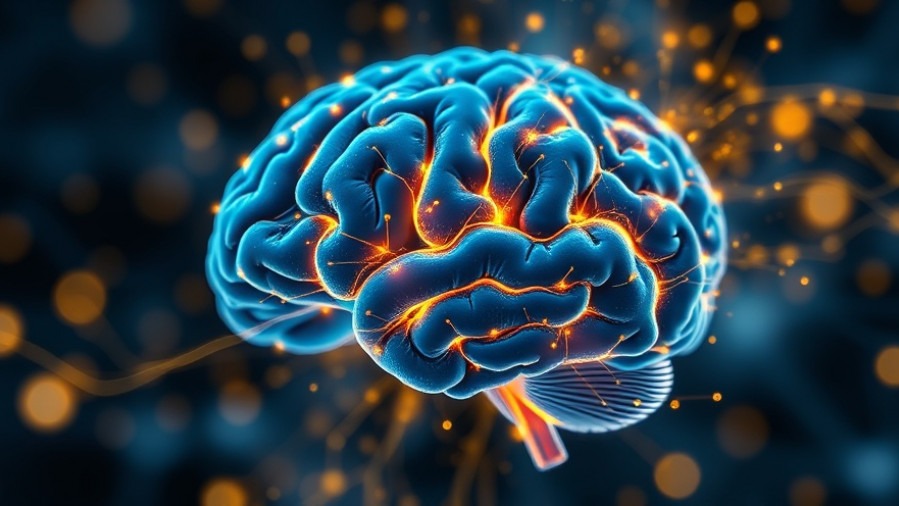
Unlock Your True Potential: The Power of Nootropic Supplements
In a world buzzing with notifications, multitasking, and mental fatigue, focus has become one of the rarest—and most valuable—resources. Whether you’re working from home, studying late into the night, or juggling endless responsibilities, maintaining mental clarity can feel like a losing battle.
It’s no wonder that an increasing number of people are turning to nootropic supplements—a new generation of cognitive enhancers designed to boost focus, memory, and creativity in a natural, sustainable way.
Once the secret of tech entrepreneurs and biohackers, nootropics are now entering the mainstream wellness scene, reshaping the way we think about mental performance.
The Allure of Nootropics: What They Are and How They Work
The word nootropic comes from the Greek noos (mind) and tropein (to turn)—literally “to turn the mind.” The term was coined in the 1970s by Dr. Corneliu Giurgea, a Romanian psychologist and chemist who was among the first to study compounds that could safely enhance cognitive function.
Today, nootropics—often called “smart supplements”—encompass a broad range of substances that can support brain performance. These may include:
Natural herbs such as Bacopa monnieri, Ginkgo biloba, and Rhodiola rosea, long used in traditional medicine for memory and stress resilience.
Amino acids like L-theanine, found in green tea, which promotes relaxed alertness and helps balance the stimulating effects of caffeine.
Vitamins and nutrients, such as B12, folate, and omega-3 fatty acids, which nourish brain cells and support long-term cognitive health.
Together, these ingredients can influence neurotransmitters such as dopamine and acetylcholine—chemical messengers that regulate motivation, attention, and memory.
When combined with healthy habits, they can help the brain operate with greater precision and endurance.

Why Nootropics Are Having a Moment
The rise of nootropics isn’t just a passing trend—it reflects a cultural shift. As the lines between work and life blur, mental stamina has become as important as physical fitness.
According to Grand View Research, the global nootropics market is expected to surpass $30 billion by 2030, fueled by growing consumer interest in productivity and brain health.
Publications like Forbes and British GQ have reported on this movement, describing it as part of the “focus revolution.”
Many users report stacking natural nootropics with caffeine for smoother, more sustained energy—particularly combinations that include L-theanine to soften caffeine’s edge.
This evolution signals a broader truth: modern wellness is no longer just about physical appearance or fitness goals. It’s about mental performance, and how we sustain energy, creativity, and calm in a world of constant stimulation.
The Science of Focus and Flow
One of the most compelling aspects of nootropics is their connection to what psychologists call the flow state—a mental zone of total immersion where performance feels effortless and time seems to dissolve.
Dr. Mihály Csíkszentmihályi, who popularized the concept, found that people in flow achieve higher levels of creativity and satisfaction.
Certain nootropic compounds appear to help the brain reach that state more easily by improving communication between neurons and supporting the release of dopamine, the neurotransmitter linked to motivation and reward.
As Dr. Andrew Huberman of Stanford University has noted, supplements can “amplify performance—but only if the foundation of good sleep, nutrition, and movement is already there.”
In other words, nootropics don’t replace healthy habits; they enhance what’s already working.

Common Ingredients Found in Modern Nootropic Formulas
While formulations vary, most high-quality nootropics feature a thoughtful blend of ingredients designed to target different aspects of cognitive function. Common examples include:
Bacopa Monnieri: Shown in clinical studies to support memory and learning speed with consistent use.
Rhodiola Rosea: An adaptogen that reduces fatigue and improves resilience to stress.
Lion’s Mane Mushroom: May promote nerve growth factor (NGF) production, supporting long-term brain cell health.
L-Theanine: Encourages calm alertness, especially when paired with caffeine.
Phosphatidylserine: A phospholipid vital for cell membrane integrity and mental sharpness.
B-Vitamins (B6, B9, B12): Essential for healthy neurotransmitter synthesis and energy metabolism.
These compounds can be found individually or in multi-ingredient blends designed for daily cognitive maintenance.
How Nootropics Support Mental Health and Clarity
Beyond improving focus, nootropics can contribute to overall mental well-being. Some reduce the impact of stress hormones, others support better sleep cycles, and a few even influence mood balance.
For example, Rhodiola has been linked to lower fatigue during demanding tasks, while Omega-3 fatty acids support emotional regulation.
Many users report that nootropics help them stay centered in high-pressure environments, promoting clarity and calm rather than overstimulation.
As interest in brain health grows, these supplements are being incorporated into broader wellness routines that also include mindfulness, exercise, and balanced nutrition.
Caution and Responsible Use
Despite their appeal, nootropics are not miracle pills. Everyone’s neurochemistry is unique, and results can vary. Some people may experience mild side effects—such as digestive discomfort or restlessness—especially when combining multiple stimulatory ingredients.
Experts recommend starting with a single-ingredient supplement to gauge your body’s response. More importantly, nootropics should never replace medical treatment or a healthy lifestyle.
As Dr. Tara Swart, a neuroscientist and leadership coach, often emphasizes: “You can’t out-supplement poor habits. These tools work best on a foundation of rest, hydration, and movement.”

The Verdict: A Tool for Modern Minds
Nootropics represent more than just a supplement trend—they reflect the modern pursuit of balance between productivity and peace.
When used thoughtfully, they can help individuals maintain sharper focus, support long-term brain health, and sustain energy throughout the day.
However, their true power lies not in quick fixes but in consistency and self-awareness. They’re most effective when paired with good sleep, physical activity, and mindfulness practices that already strengthen cognitive function naturally.
In a culture obsessed with doing more, nootropics invite a different kind of optimization—not one rooted in burnout, but in clarity. They remind us that unlocking potential isn’t about hacking the brain; it’s about supporting it to work as it was meant to.
Final Takeaway
As science continues to explore the boundaries of human performance, nootropics will likely remain part of the conversation. They offer a promising way to nurture mental sharpness and resilience in an age that demands both.
For those looking to think clearer, focus longer, and feel more engaged in their daily lives, nootropics aren’t about escaping limits—they’re about discovering what the mind can truly achieve when given the right support.
Looking for ways to stress less and stay centered? Visit Mind Matters for quick mindfulness tips, then head back to Sacramento Living Well for more ways to feel your best every day.
---
Authored by the Sacramento Living Well Editorial Team — a publication of DSA Digital Media, dedicated to highlighting wellness, local living, and inspiring community stories throughout Greater Sacramento.
 Add Row
Add Row  Add
Add 





Write A Comment